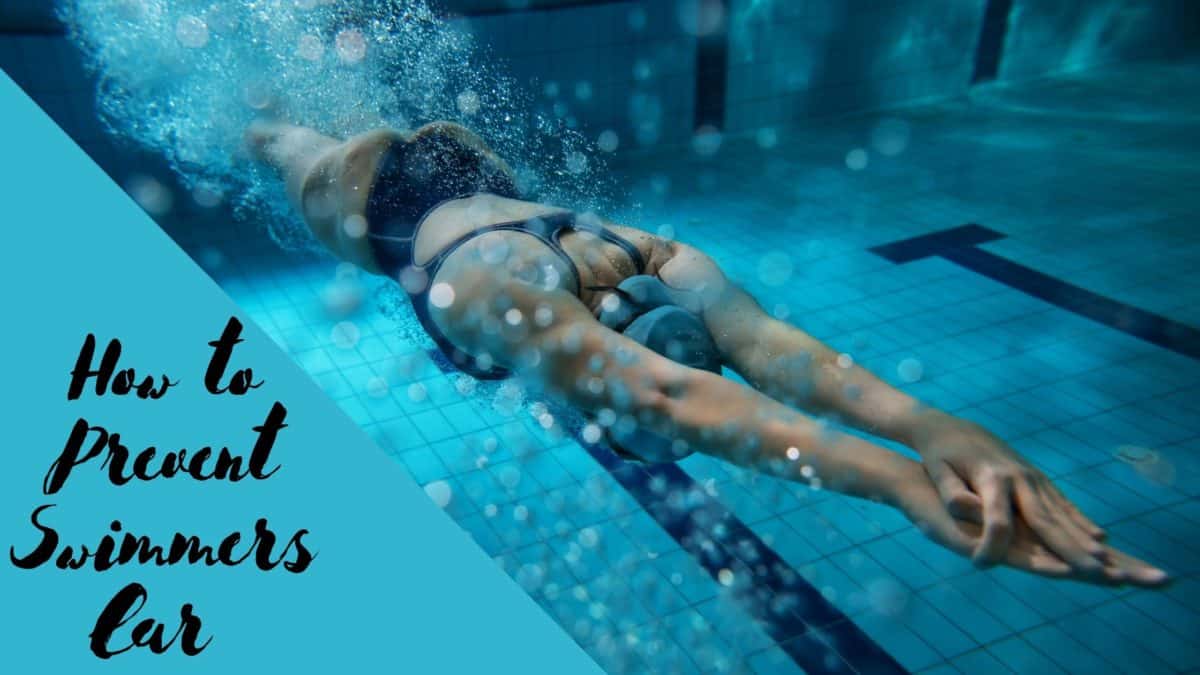- Using Hearing Aid Accessories for Enhanced Listening - May 6, 2025
- Practical Tips for Managing Daily Challenges With Tinnitus - April 8, 2025
- Signs Your Hearing Aid Battery Needs to Be Replaced - March 13, 2025
An irritating by-product of loving water sports can be getting swimmer’s ear. You’ll absolutely know if you have it because the pain and annoyance of the affliction is hard to ignore. Characterized by infection in the outer ear, it isn’t always the result of too many laps or games of Marco Polo in the pool, though that’s commonly the cause.
But you don’t have to let a swimmer’s ear put a damper on your aquatic fun! There are steps you can take to prevent developing this troublesome condition — and, it can be easily treated by a medical professional if you do end up with a painful infection of your outer ear.
What is swimmer’s ear?
Swimmer’s ear, also known as otitis externa is an infection of the outer ear canal. Running from your eardrum to the outside of the ear, this outer ear inflammation is different from typical ear infections, which occur in the middle ear and behind the eardrum.
We refer to the condition as swimmer’s ear because it most often occurs when bacteria from water immersion in a lake or ocean settles in the outer ear canal. Under the right conditions, like high humidity, a scratch within the outer ear canal or less production of earwax, bacteria finds itself in the precise warm, moist conditions it can thrive in.
There are other ways to get swimmer’s ear, even without dunking your head underwater. As mentioned, if the conditions above are met, any bacteria can find its way into your ear and spark an infection. Usually, the ear does a marvelous job at cleaning itself and protecting you from these conditions, but occasionally your ear will have a chink in its armor. Rarely, swimmer’s ear can be caused by a virus or a fungus.
Let your ears clean themselves
The natural defense mechanisms provided by your ears are usually sufficient in staving off infection. What we know as earwax is actually a collection of the thin, water-repellent and acid film that lines the outer ear canal. This substance works remarkably well to discourage bacterial infections and it helps clean the ear of debris, too.
Allow your ears to clean themselves so that this natural protection remains. Additionally, putting anything smaller than your elbow inside your ear canal could cause abrasions in the ear, which invite infection.
Monitor the water you swim in
Bacteria exists everywhere and you can’t avoid it in the world, but you can pay attention to alerts about the bodies of water you swim in. If bacteria levels are high, skip your swim day or take extra precautionary measures post-swim to help the water reaching your inner ear dry up quickly.
Use quick-drying solutions after swimming
A good habit to get into is to use a solution to encourage drying excess water from the ear canal if you’re in a high humidity environment or are spending a lot of time in the water. There are some solutions available over the counter for purchase at your pharmacy. You can also make your own effective solution at home using equal parts white vinegar and rubbing alcohol.
To use, drain the water out of your ears by tilting your head to each side. Then, pour one teaspoon of the solution in each ear and let it drain all the way back out.
Wear earplugs
If you are prone to ear infections or don’t like the feeling of water in your ear canal, you can always use earplugs or a swim cap for water activities.
Symptoms of swimmer’s ear
Of course, even if you take every precaution, swimmer’s ear might make an appearance in your life at some point or another. Visit your doctor whenever you feel pain in your ear, because effective treatment of any type of ear infection or condition can prevent even more severe outcomes in your hearing health. However, if the pain is heightened by pulling on the outer ear or pressing the small piece of cartilage at the ear opening, it’s probably an outer ear infection. You may also experience a muffling in the sound you can hear.
Treatment will likely consist of drops of antibiotics or steroids to counteract the infection and lessen any inflammation. Try to keep the outer ear canal dry during treatment to help encourage the healing process by inserting cotton balls coated with petroleum jelly into the ears when showering or bathing. Once your course of treatment is over, your swimmer’s ear should be fully healed and won’t leave any lasting impacts on your hearing or ear health.


